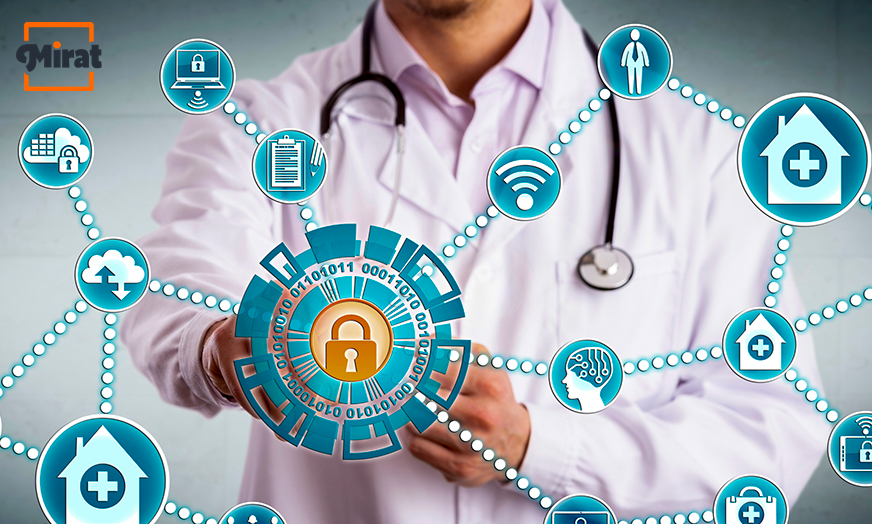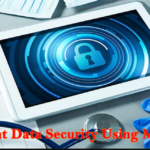Organizations are becoming increasingly vulnerable to internet attacks, which jeopardize daily operations and compromise sensitive patient data. This is the reason why cyber threat healthcare is increasingly important. Due to the length of their workdays, healthcare professionals lack the amount of time needed to familiarize themselves with internet risks. The disruption that would result from a thorough revamp of cybersecurity in healthcare is simply too great for many organizations to contemplate.
MIRAT can help cyber threat healthcare organizations safeguard the critical information and assets needed to maintain cybersecurity in healthcare. Want to know more about how to manage healthcare cyber attacks? Visit our website MIRAT.ai to learn about our modules that will assist you in resolving any future healthcare cyber attacks. Also, don’t forget to try out our 14-day free trial demo serviced on the website.
Healthcare leaders are prepared to raise cybersecurity for healthcare investment. However, with new risks being discovered daily, it’s impossible to determine where an organization’s resources would be better spent. The high need for information on cybersecurity for healthcare and frequently out-of-date systems are just one of the main reasons for cyberattacks in healthcare.
Hacking patient data is extremely valuable to attackers.
Hospitals accumulate an enormous amount of personal patient data.
Confidential information is extremely valuable to hackers, who can sell it, which is another reason for cyberattacks on the healthcare industry. These associations have a responsibility to safeguard their patients’ personal information and improve hospital network security. With GDPR coming into effect this year, hospital network security is becoming increasingly critical.
Punitive damages – whether they are imposed for non-compliance with GDPR or for paying to recover data encrypted by malware – are genuine and a frightening prospect for a healthcare profession that is already struggling to fund daily job demands.
IT professionals recognize the expense of safeguarding their data with solutions such as multi-factor identity verification which costs significantly less than the price of ransomware or similar assaults. This verification system is a security solution that identifies a user using many pieces of information and then creates a one-time password for each login session. This significantly complicates hackers stealing passwords and other sensitive information, as medical equipment provides an accessible entry point for attackers.
Nowadays, there are few drawbacks to advancements in healthcare technology. In modern healthcare, medical gadgets such as x-rays, insulin pumps, and defibrillators are vital. However, for those responsible for internet security and patient records protection, these new gadgets increase attack vectors. Medical devices are often designed to perform a single function, such as monitoring heart rate and blood pressure or distributing medications. They are not designed for security. While the devices individually may not contain the information required by hackers who try hacking patient data, they can be utilized to launch an assault on a database that does. Hackers might entirely take over a medical gadget in the worst-case situation, depriving healthcare organizations of essential life-saving treatment.
Hackers are well aware that medical gadgets do not hold any patient data. They view them, however, as an easy target due to their lack of protection compared to other network devices such as laptops and desktops. Medical device threats can wreak havoc on healthcare organizations by granting module interfaces to other network devices or allowing them to install pricey ransomware. Keeping network devices safe whenever possible helps to mitigate the potential damage caused by a medical device attack.
Staff must be able to access information remote monitoring, which creates additional attack vectors.
Collaboration is critical in the healthcare business, with units collaborating to deliver the best answer possible for each patient. Those who want access to information are not always seated at their desks; they frequently operate remotely from various devices.
Remotely subscribing to a network from new devices poses a danger, as not all devices are safe. Additionally, healthcare personnel is frequently uninformed about cybersecurity best practices. It is critical that corrupted devices do not gain network access, as even a single hijacked device can leave an entire organization wide open. Risk-based authentication is one choice for businesses with workers who work across devices.
This solution simplifies risk analysis by allowing IT employees to create policies that identify the risk associated with a particular device based on characteristics such as the user’s identity, location, and more. Any odd activity is then flagged to ensure that critical patient information is never exposed to potentially dangerous equipment.
Mirat.ai’s IT Infrastructure Management is Affordable & Easy to use! Get your Dashboard ready in only 5 Minutes. Request for Trial/Demo now (or) Contact our Team Now .
Contact Information:
Hema
Sales Executive
Phone: +1-315-636-4213
Email: sales@mirat.ai
Website: https://www.mirat.ai/

